James Lovell, the legendary NASA astronaut and heroic commander of Apollo 13 who masterfully guided his crew through one of the most dangerous moments in space exploration history, has died, NASA confirmed on Friday.
The 97-year-old American icon, known for delivering the infamous “Houston, we’ve had a problem” line during the ill-fated Apollo 13 mission, passed away Thursday in Lake Forest, Illinois.
“Lovell's life and work inspired millions,” NASA said in a statement. “His courage under pressure helped forge our path to the Moon and beyond—a journey that continues today.”
Acting NASA Administrator Sean Duffy also paid tribute to the late astronaut, saying Lovell’s “life and work inspired millions of people across the decades. Jim’s character and steadfast courage helped our nation reach the Moon and turned a potential tragedy into a success from which we learned an enormous amount. We mourn his passing even as we celebrate his achievements.”
“He embodied the bold resolve and optimism of both past and future explorers, and we will remember him always,” Duffy added on his personal X account.
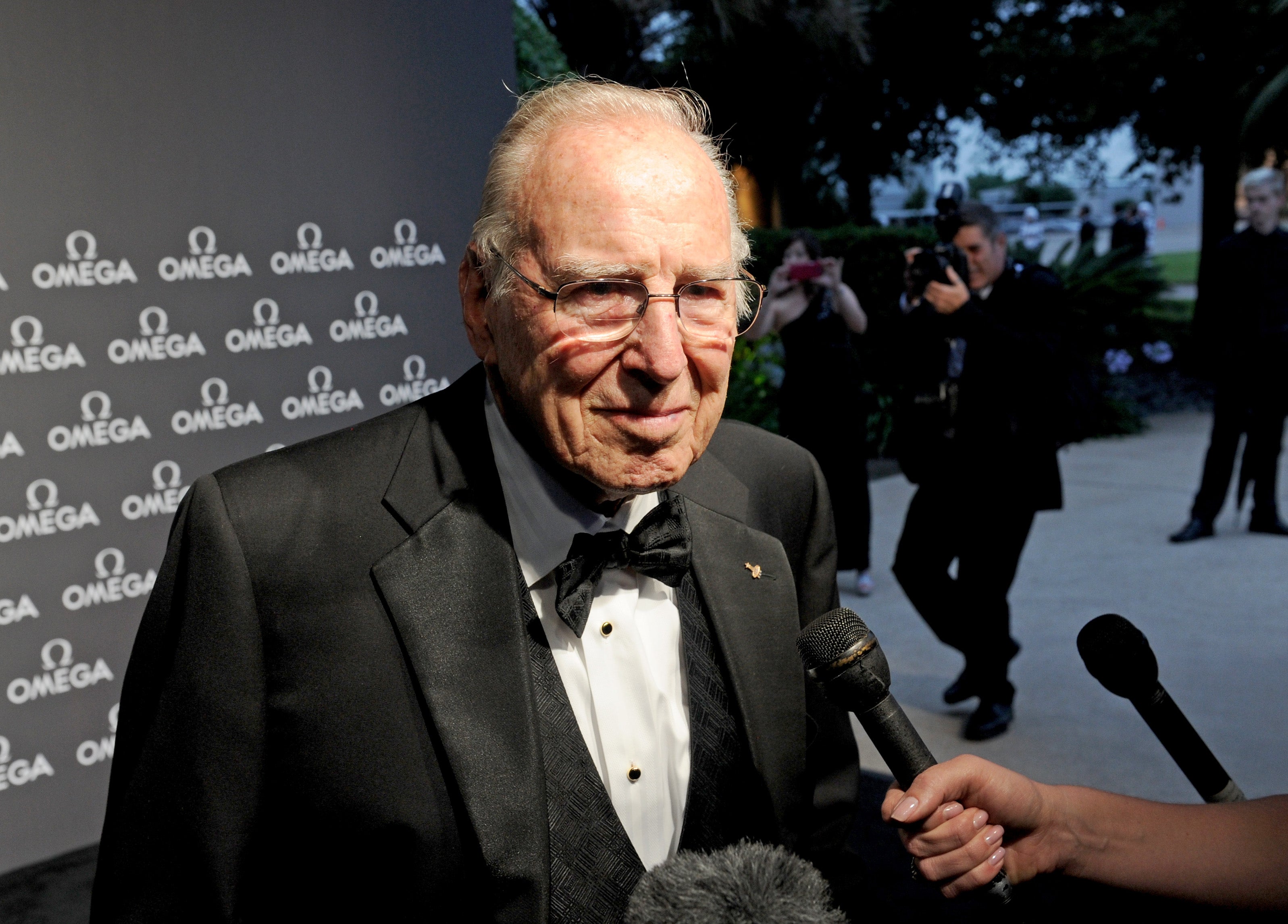
Lovell is perhaps best known for commanding the Apollo 13 mission in 1970. What was meant to be the third Moon landing turned into a tense rescue mission after an oxygen tank explosion damaged the spacecraft. Lovell and his crew, Jack Swigert and Fred Haise, worked closely with NASA’s Mission Control to safely return to Earth, demonstrating extraordinary calm and leadership under pressure. This mission was later immortalized in the 1995 film Apollo 13, in which Tom Hanks portrayed Lovell, who also made a cameo appearance.
The failed mission had a lasting impact on Lovell, who said in 1999, per the Associated Press, “I don’t worry about crises any longer.” Whenever he had a problem, he was reported to have said: “I could have been gone back in 1970. I’m still here. I’m still breathing.”
After retiring from NASA and the Navy in 1973, Lovell transitioned to a successful business career and co-authored the book Lost Moon, which detailed the Apollo 13 mission and inspired the movie adaptation.
Lovell was recognized for his contributions to space exploration, receiving the Presidential Medal of Freedom and 1970 and being inducted into the U.S. Astronaut Hall of Fame in 1993.
Lovell was disappointed he never got to walk on the moon, something commented on by President Bill Clinton as he awarded him the Congressional Space Medal of Honor in 1995. “While you may have lost the moon ... you gained something that is far more important perhaps: the abiding respect and gratitude of the American people,” Clinton said.
Lovell later admitted that the mission’s failure brought him greater fame than a successful Apollo 13 landing would have.
“The mission itself and the fact that we triumphed over a certain catastrophe does give me a deep sense of satisfaction,” he once said, according to AP. “Going to the moon, if everything works right, it’s like following a cookbook. It’s not that big a deal. If something goes wrong, that’s what separates the men from the boys,” he added in 2004.
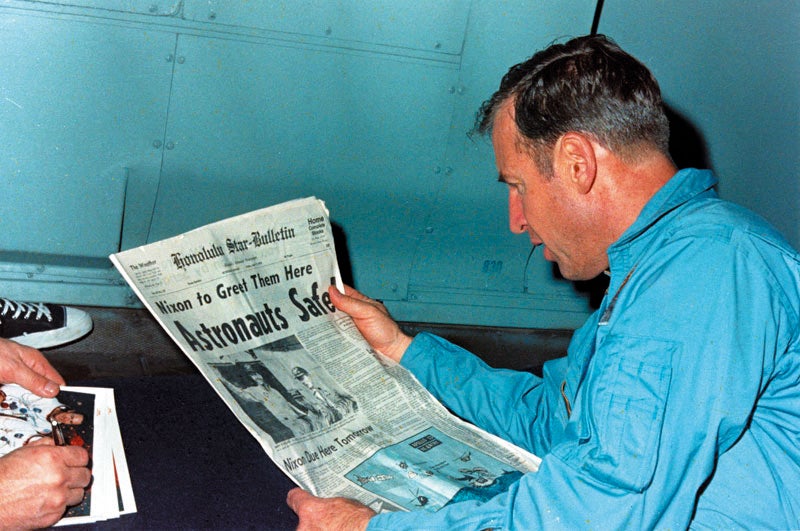
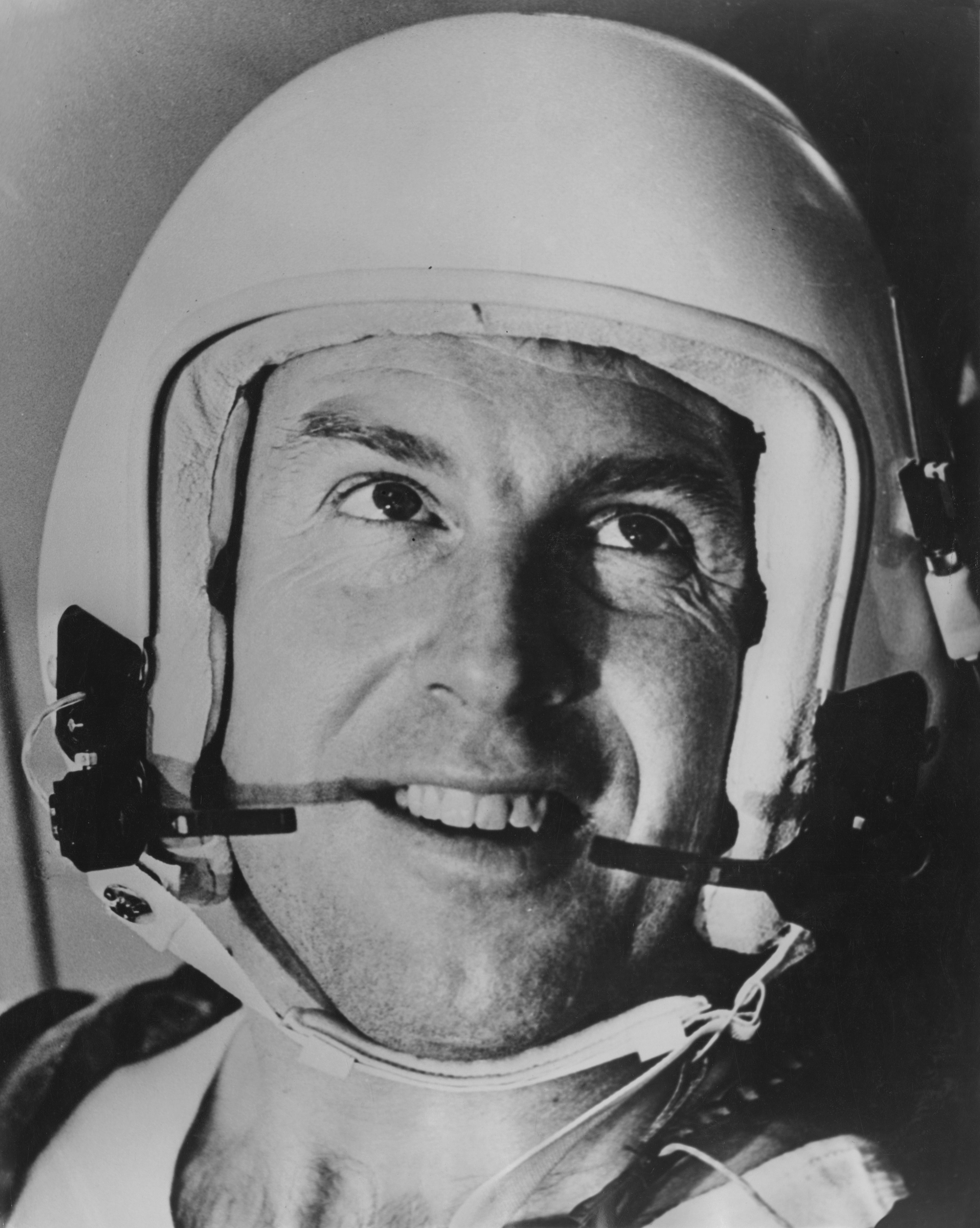
Born in 1928 in Cleveland, Ohio, Lovell grew up in Milwaukee, Wisconsin. From an early age, he was fascinated by aviation and space, which inspired him to pursue a career in the Navy.
After graduating from the U.S. Naval Academy in 1952, Lovell became a naval aviator and later a test pilot. His dedication and skill eventually led to his selection by NASA in 1962 as part of its second group of astronauts, often called the “New Nine.”
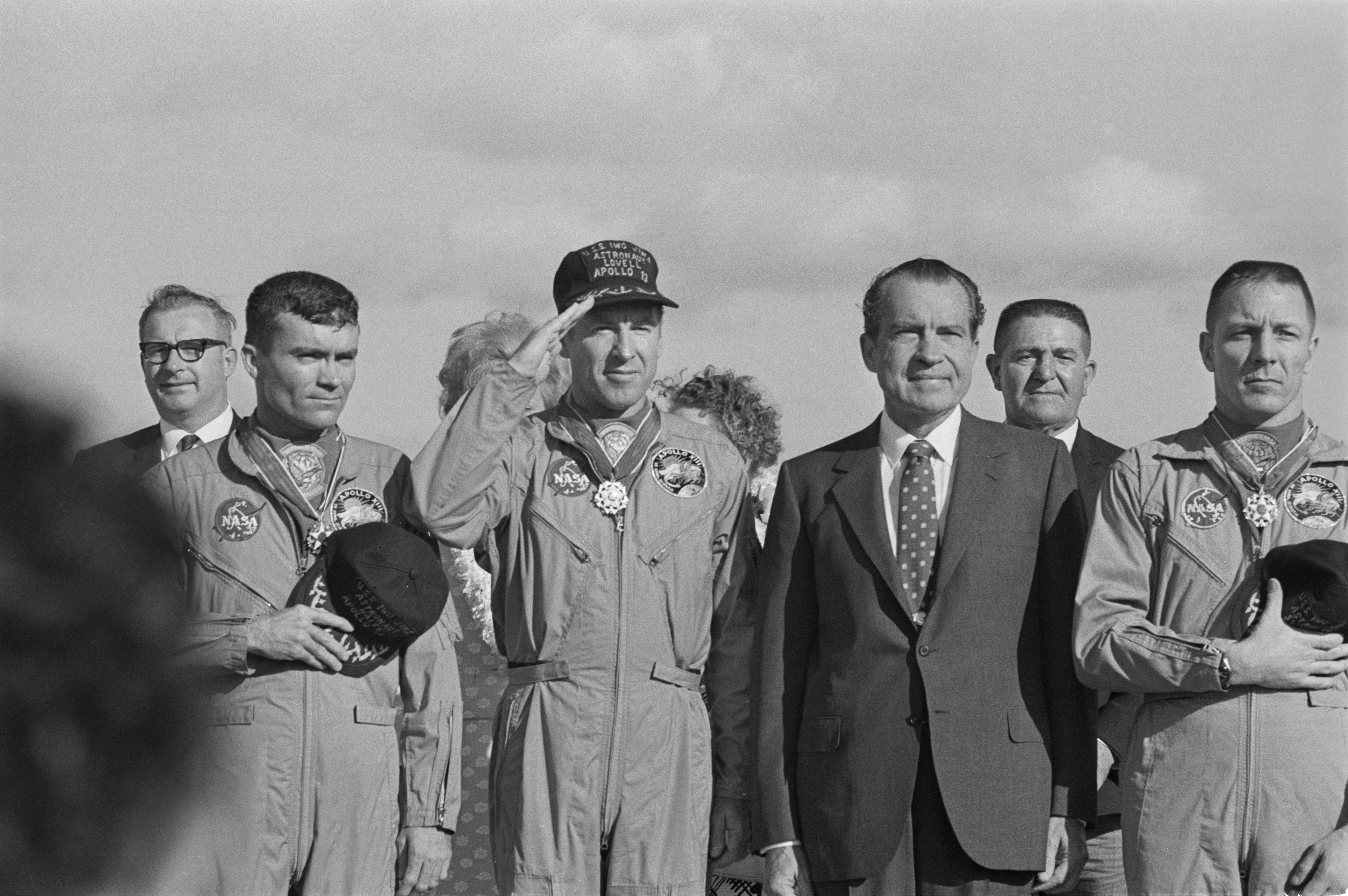
Lovell’s NASA career was marked by several important space missions. He first flew in space as the pilot of Gemini 7 in 1965, a mission that set a then-record for the longest manned spaceflight at nearly 14 days.
He then commanded Gemini 12 in 1966, where he and Buzz Aldrin successfully completed critical spacewalks that helped perfect techniques needed for future Apollo missions.
In 1968, Lovell served as the Command Module Pilot on Apollo 8, the first mission to orbit the Moon, which was a historic milestone for NASA and mankind, and a pivotal step in the Space Race.
Tributes soared in quickly after the news of Lovell’s death. Former NASA astronaut Mike Massimino called Lovell his “hero”.
“I am so sad to hear about the passing of my hero Jim Lovell,” he said.
“He was a great role model not only as an astronaut, but also as a person who exemplified a life well lived - both professionally and personally. He will be missed by many, Godspeed my friend.”
Ohio Governor Mike DeWine added: “Fran and I are saddened to learn about the death of US Astronaut Jim Lovell. Born in Cleveland, Jim was a true American hero. His bravery during the Apollo 13 mission captured the attention of the world and reminded us of the importance of teamwork and hope in the face of adversity. We extend our sincere condolences to the Lovell family.”
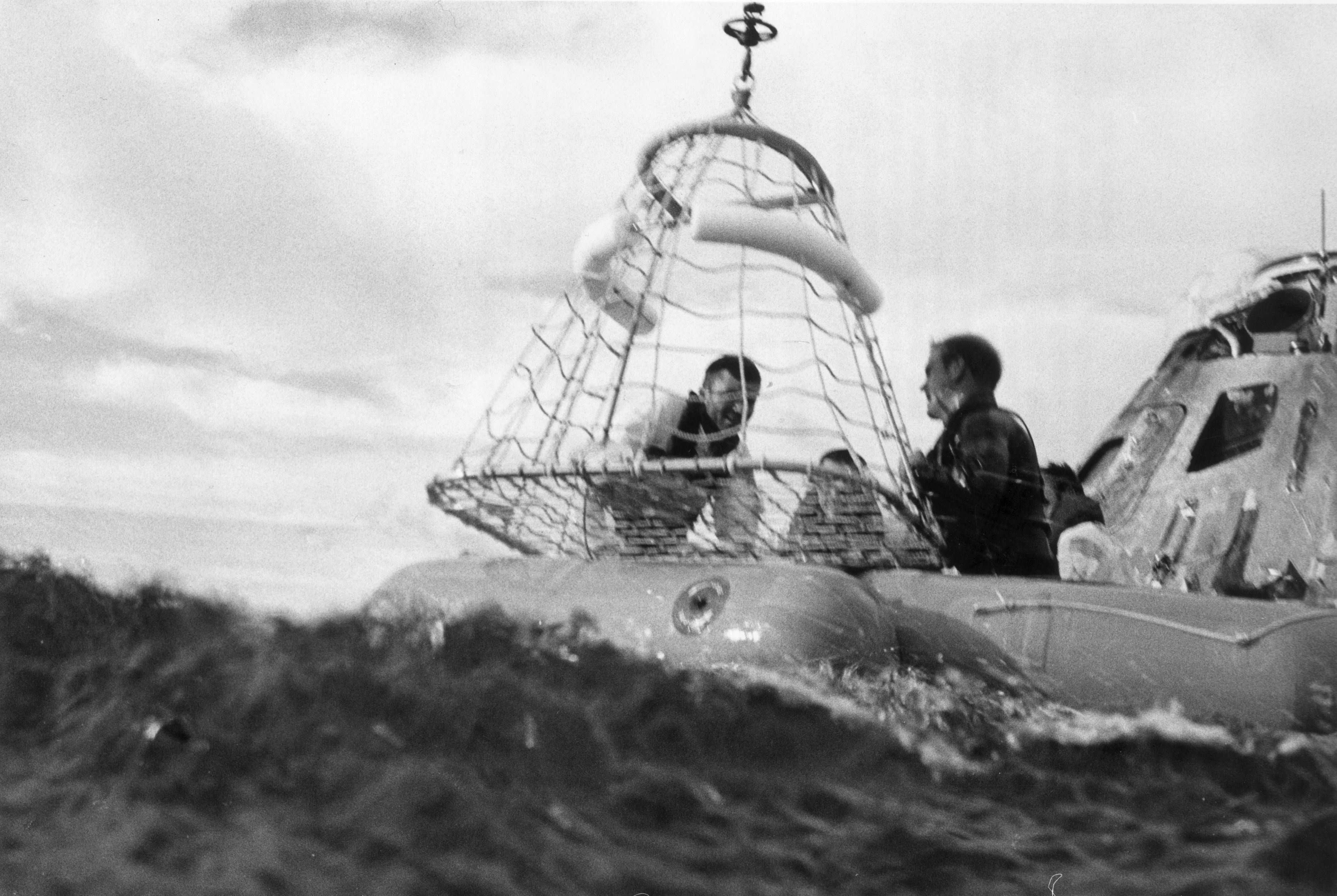
Lovell married his high school sweetheart, Marilyn, in 1952. The pair was married for 71 years until Marilyn’s death from natural causes in 2023. She was 93.
The pair had four children: Barbara, 71, James “Jay,” 70, Susan, 67, and Jeffrey, 59.
Telescope takes best picture yet of comet hurtling our way from another solar system
Hubble Space Telescope takes best picture yet of the comet visiting from another solar system
Trump moves to shut down NASA missions that measure carbon dioxide and plant health
Apollo 13 moon mission leader James Lovell dies at 97
Hubble Space Telescope takes best picture yet of the comet visiting from another solar system
Trump moves to shut down NASA missions that measure carbon dioxide and plant health







